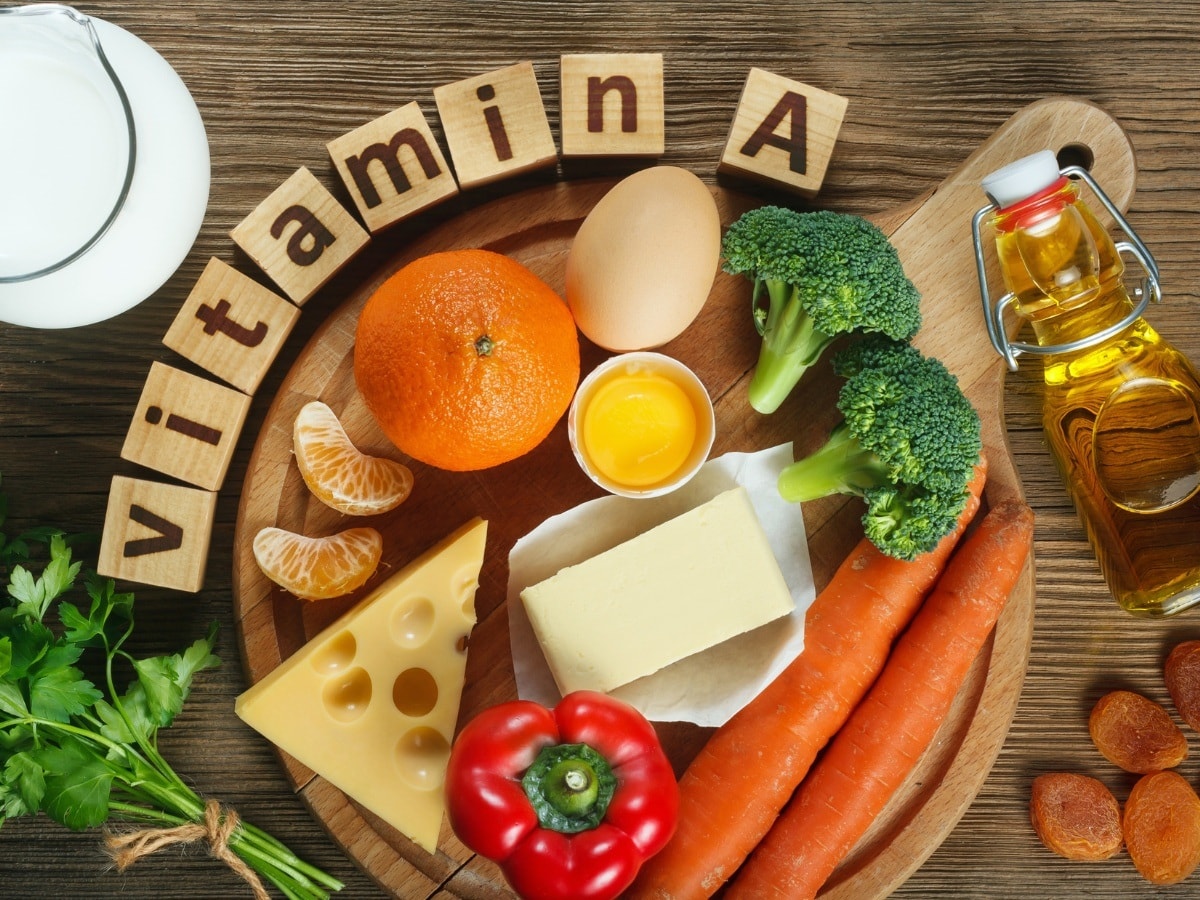Dietary tips to maximize vitamin A absorption.
Vitamin A is a golden shield protecting children under 5 years old, helping them develop comprehensively and strengthening their immunity... Below are some tips to help children absorb this nutrient best.
Among essential micronutrients, vitamin A plays a crucial role in enhancing children's health and overall development. Vitamin A is not only known for its ability to protect the eyes and help children have good vision, but it is also an essential factor in:
- Boosts the immune system: This helps the child's body fight off infections, especially pneumonia, diarrhea, and measles.
- Preventing blindness: Vitamin A deficiency is the leading preventable cause of blindness in children.
- Supports development: Vitamin A participates in cell formation and regeneration, helping children grow healthily.

Vitamin A plays a crucial role in children's development. (Illustration: Getty Images)
Vitamin A plays a crucial role in boosting the immune system through various biological mechanisms.
Here are some dietary tips to help increase vitamin A absorption:
Combine with healthy fats.
Vitamin A (retinol and beta-carotene) requires fat for effective absorption in the small intestine. Therefore, you need to include a small amount of fat in your meals, such as:
- Olive oil, soybean oil, palm oil.
- Butter, fish oil, or animal fat.
- Nuts such as almonds, walnuts, and peanuts.
For example, we can eat carrots raw with a little olive oil, or cook green vegetables with vegetable oil rich in vitamin A.
Eat foods rich in vitamin A along with foods rich in zinc.
Zinc supports the metabolism and transport of vitamin A from the liver to tissues throughout the body. Foods rich in zinc include:
- Beef, seafood (such as oysters, crab).
- Legumes and whole grains.
- Seeds such as chia seeds and pumpkin seeds.
For example, fish cooked with spinach or pumpkin is a dish rich in both vitamin A and zinc.
Consume foods rich in vitamin A along with foods containing vitamin E.
Vitamin E protects vitamin A from oxidation, helping to increase its effectiveness in the body.
Foods rich in vitamin E include vegetable oils, avocados, sunflower seeds, and nuts.
As a suggestion, you can combine a slice of avocado with bread containing animal liver or green vegetables.
Proper cooking methods can help preserve vitamin A.
Vitamin A is relatively heat-stable, but provitamin A (beta-carotene) in vegetables can be lost when cooked for too long or at high temperatures. Therefore, steaming or stir-frying quickly is the best way to preserve the nutrients.
Chopping foods rich in beta-carotene (such as carrots and pumpkins) before cooking helps release the nutrients more easily.
Foods and habits to avoid when taking vitamin A.
Vitamin A doesn't have many incompatible foods, but there are some factors that can reduce its absorption or cause unwanted side effects:
Limit foods that inhibit vitamin A absorption.
- Excessive fiber intake: Large amounts of fiber (e.g., from bran or whole grains) can bind with vitamin A and hinder its absorption. However, it's not necessary to avoid it completely; instead, maintain a balanced intake in accordance with the recommendations of the National Institute of Nutrition.
- Industrially processed foods: Fried foods and fast food often contain trans fats, which reduce the absorption of vitamin A.
Note when combining with other medications or supplements.
- Vitamin A overdose: Taking high doses of vitamin A supplements without a prescription can easily lead to toxicity.
- High doses of calcium and iron: Taking excessive iron or calcium supplements can affect vitamin A absorption in some cases.
In addition to dietary supplementation, the Ministry of Health in Vietnam organizes free vitamin A supplementation campaigns for children aged 6 months to under 5 years old in June and December each year. Parents should ensure their children receive adequate vitamin A supplementation as directed by health authorities. Don't let vitamin A deficiency rob your child of their future.



